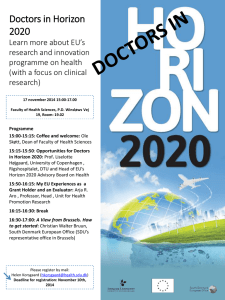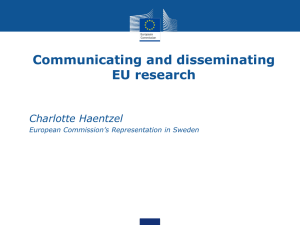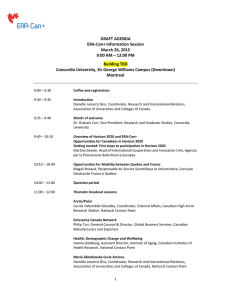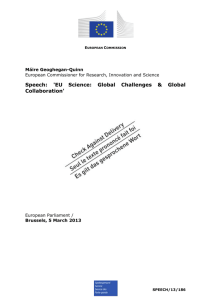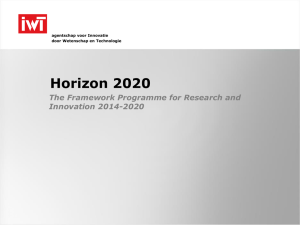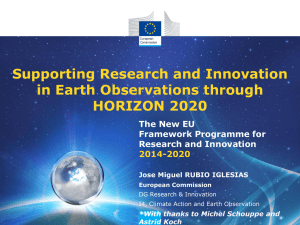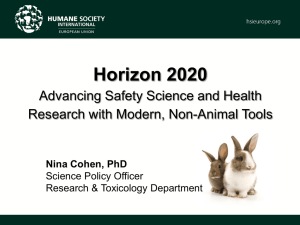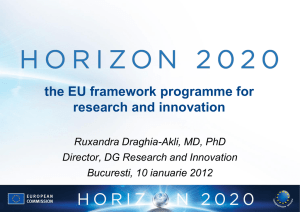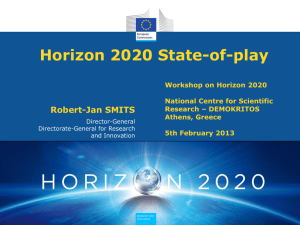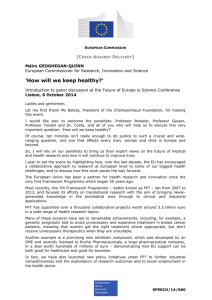EU space research - Arise
advertisement
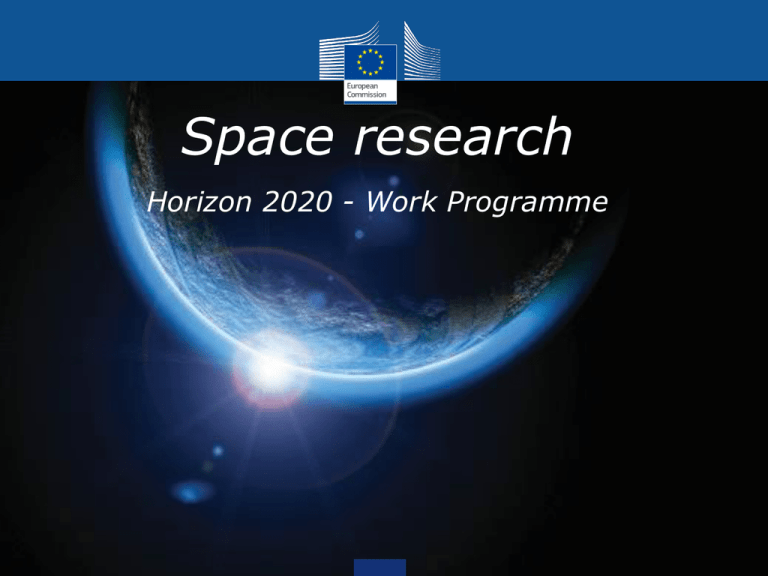
Space research Horizon 2020 - Work Programme State of play of H2020 / Space Work Programme Horizon 2020 Space work programme Work programme covers 2014-2015 Discussion in space shadow programme committee in 2013 H2020 decision: the 2015 parts of the 2014-2015 WP are indicative Outcome of the discussion: positive opinion, with 2 abstentions (IT, FR) Formal vote of February 2014 confirmed this outcome LEIT Leadership In Enabling & Industrial Technologies SPACE 17.25 M€ 8.5+8.75 Budget Indicative Evolution Space 2014-2020 2016-2020 under study GALILEO-EGNSS 2014-2015 European Global Navigation Satellite System • Horizon 2020 Framework Regulation: • Union level action and investment in space research are required in accordance with Article 189 (TFEU), in order to maintain the competitive edge, to safeguard Union space infrastructures and programmes such as Copernicus and Galileo and to sustain a future role for Europe in space R+D for Public Regulated Service 144 M€ Calls Upstream EGNSS awareness raising Technology Development "post EGEP" Galileo Applications 2015 RTD for enhanced Missions & services Copernicus Topics: 2014-2015 “Earth Observation” - Copernicus New ideas for Earth-relevant space applications 2015 Bringing EO applications to the market Transition towards Copernicus (Marine & Atmosphere) Climate-change relevant space-based data reprocessing… Observation capacity mapping for climate-change 2015 Stimulating wider user of Copernicus Sentinel data Technology developments for commercial imaging 58,5 M€ Protection of space assets 2014-2015 Topics: Space Weather, NEO, SST, Debris Space Weather NEO: access technologies and characterisation 2015 Space Surveillance and Tracking Passive means to reduce the impact of space debris 29,5 M€ Competitiveness of the European Space sector 2014-2015 Technology development, science, exploration Technologies for European non-dependence and competitiveness Independent access to space Studies for In-Orbit demonstration/validation (2014) Bottom up space technologies at low TRL Launch of two Strategic Research Clusters (2014) Space exploration Science in context 84,5 M€ Horizon 2020 International cooperation • Horizon 2020 is a world-class programme open to International participation • Organisations from non-EU member states may participate in projects (across themes in the Horizon 2020 programme) • Partners from most ASEAN countries "automatically funded" by the EU (except wealthier nations: Singapore and Brunei) • But! • Must be part of a successful proposal • • • Proposal peer review by independent experts Competitive process Minimum condition of at least three different organisations from at least three EU member states (or associated states) INTERNATIONAL COOPERATION 2014-2015 COMPET 9 - 6 Technology "demonstrator" projects for exploration • Demonstrator projects would target underpinning enabling technologies for space exploration (e.g. robotics, energy, propulsion or life support). "countries active in space exploration" International Cooperation in space science Europe should continue to play a leading role in planetary science shaping the research in the field • including the elaboration of • Planetary protection guidelines. "space powers active in planetary science" Thank you for your attention! More information at http://ec.europa.eu/embrace_space
